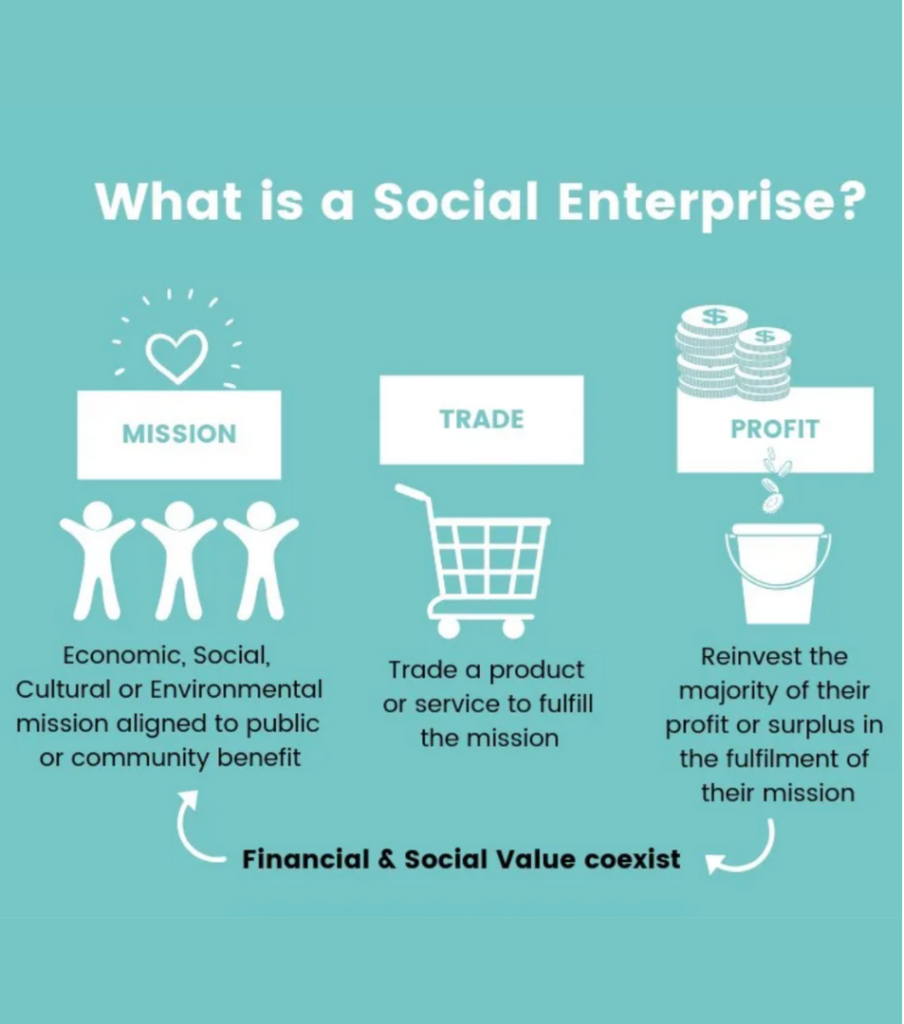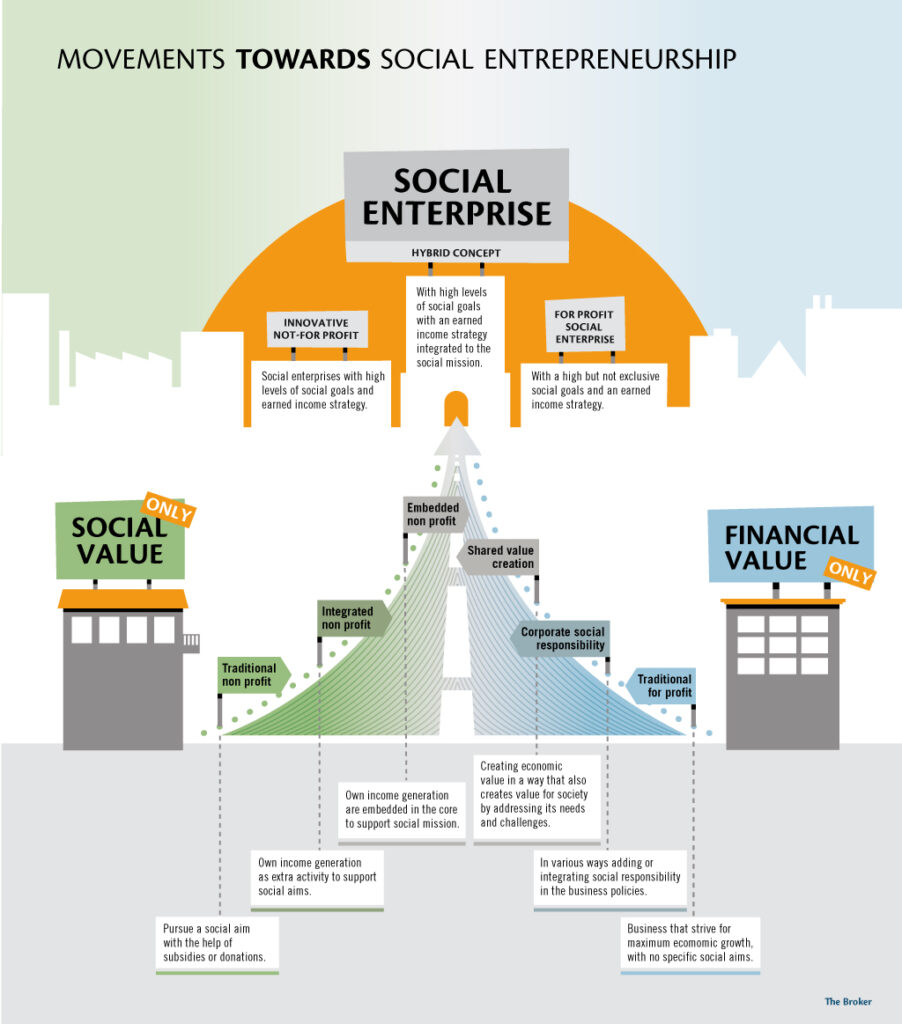Although in Canada a universally agreed-upon definition of Social Enterprises (SEs) does not exist, generally they are defined as:
Businesses that sell goods or services with a social, environmental, and/ or cultural focus at the heart of their mission.
Although SEs are continuously evolving and may change over time due to newly discovered social, environmental, or cultural needs; all SEs must balance surplus generation and the fulfillment of their mission. In any case, the objective is to give back to the community in some way.
This underlying concept contributes to their strong community ties, as they sustain strong relational bonds with local residents and are thus appreciated for the positive changes they produce. Having a broad definition, social enterprises may exist in a variety of business models and industries from charities to community-based SEs.
Your business could already have key aspects of a Social Enterprise!
Examples of Social Enterprises >>
YouTube Video: What is Social Enterprise?
The BC Center for Social Innovation


Types of Social Enterprises
Social Enterprises (SEs) are typically divided into 2 main categories.
-
Non- Govermental Organizations (NGOs) and/or Charities
NGOs and charities are known to operate on both small and large scales. They work towards social, political, or environmental goals such as disaster relief, poverty alleviation, healthcare provision, environmental protection, etc. Those which operate a business venture are social enterprises. The surplus is used to meet the organization’s mission. -
For-profit Enterprises:
A) with a social mandate; and
B) which reinvest the majority of their profits into their social mission
Differentiation from Traditional Businesses
Some Social Enterprises operate under the same structure of traditional businesses, and at first glance it may appear that these SEs mimic traditional business processes. However, the key to understanding a SE is to understand its mission, which details its social objectives.
Earning a surplus or profit is still important to SEs, as funds are required to ensure the sustainability of the venture. However, instead of distributing profit amongst a small circle of elites at the top of the company, the profit is reinvested into operations that help achieve its social, environmental, or cultural mission.
Find out:
What is a Social Purpose Organization?
What are some examples of business conversions/social acquisitions?
How does a business conversion work?
